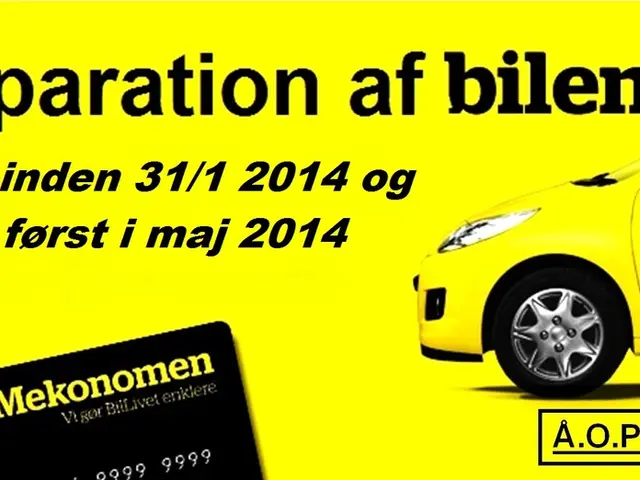Ford Faces Potential Showdown: Union Workers at Cologne Plant Ready for Open-Ended Strike
- *
Striking Ford workers in Cologne prepare for an ongoing work stoppage - Workers at Ford's Cologne plant are prepared to engage in an ongoing strike
Ford's car manufacturing plant in Cologne could witness a tumultuous labor dispute for the first time ever. In a voting ballot, a staggering 93.5% of IG Metall union members employed at Ford Cologne supported the use of "all union means, including strikes" to advocate for worker-friendly regulations in a new social contract. The minimum 75% turnout was far surpassed, with a whopping 95.7% participation rate. "The workers in the plant stand by us," said David Luedtke, IG Metall's spokesperson at Ford Cologne.
In light of this clear mandate, the union is now deliberating its next actions, with strikes a possible reality as early as next week. The scale of the strikes remains uncertain, but they are expected to be more prolonged and intense compared to the warning strikes in March and April.
"We are resolute in carrying out this mandate from our colleagues," said Kerstin Klein, the first chairperson of IG Metall Cologne-Leverkusen. "Ford must make a move - otherwise, we will follow through. A fierce labor dispute could not only harm Ford's commercial vehicle business in Europe, but also Ford's corporate reputation."
This would be the first time strikes are initiated at Ford Cologne following a ballot. In earlier ballots, agreements were reached between the employer and the union. Ford currently employs around 11,500 individuals in the city, with the majority being union members.
Questionable Electric Investments
Ford's German subsidiary produces two electric car models in Cologne, but sales have proved lackluster. The €1.9 billion investment aimed at converting the Cologne plant to electric vehicle production has yet to yield substantial returns, leaving the German subsidiary in the red.
To slash costs, management in Cologne seeks to pare down 2,900 jobs by the end of 2027. However, they require the approval of the works council, as an agreement signed two years ago prevents dismissals until 2032.
Verdi is pressing for hefty severance payments for departing employees or those whose roles are outsourced to external service providers, as well as financial protection for remaining employees in case Ford plants face bankruptcy. Although this remains a theoretical scenario, it has become more of a possibility following the parent company's withdrawal of its guarantee.
As contract negotiations reached an impasse, IG Metall called for a ballot and received the desired backing. The union can now call for either temporary or open-ended strikes. A spokesperson for Ford stated that the company respects the right to strike and continues to engage in constructive negotiations.
However, IG Metall has announced that negotiations are suspended until the employer presents a viable proposal. The numbers speak for themselves - Ford's Cologne plant employed around 17,000 workers in 2009, but that figure has dwindled to around 11,500 today, indicating significant downsizing pressures. Union leaders have expressed that financial changes and reduced workforces put the Cologne plant in " acute danger," prompting preparations for possible industrial actions or negotiations to secure jobs and working conditions.
The Cologne plant plays a pivotal role in Ford's commercial vehicle business in Europe, particularly as it produces models like the 100% electric Ford Explorer at the Ford Electric Center Factory located there. The labor disputes and workforce reductions could jeopardize production capacity and supply chains for Ford’s commercial vehicles, especially electric models that will become increasingly critical as Europe moves towards electrification.
In addition to the looming labor disputes, the European auto industry faces broader challenges such as a 6% drop in EU new car production in 2024, increased competition from Asian and Chinese electric vehicles, and trade tensions, among others. These challenges could exacerbate the impact of the labor disputes on Ford's commercial vehicle business in the region.
- The potential for a prolonged strike at Ford's Cologne plant, supported by 93.5% of union members, stands to bring significant disruption to Ford's commercial vehicle business in Europe, particularly for the 100% electric Ford Explorer produced at the Ford Electric Center Factory.
- In the face of looming strikes, Ford's German subsidiary faces challenges in securing approvals for workforce reductions, as the works council requires consent and an agreement signed two years ago prevents dismissals until 2032.
- As negotiations between Ford and IG Metall reach an impasse, regulations that support workers will likely be a critical point in future discussions, as the union seeks to protect jobs and improve working conditions in the face of financial changes and downsizing pressures.
- To further complicate matters, the European auto industry as a whole is grappling with a 6% drop in EU new car production in 2024, increased competition from Asian and Chinese electric vehicles, and trade tensions.
- In the automotive industry, finance and transportation regulations play key roles in shaping employment policies and determining a company’s commercial success, underscoring the importance of balanced policies that support growth while protecting workers' rights.








